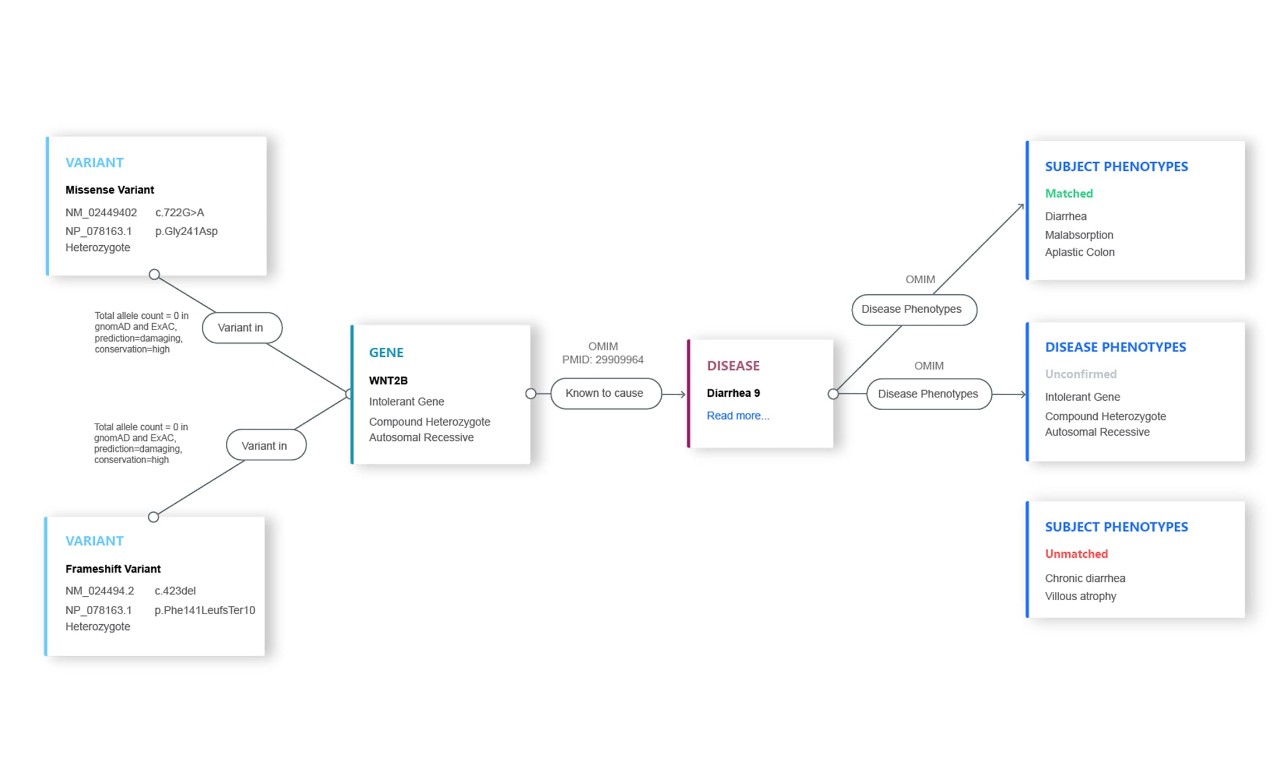Explainable artificial intelligence brings transparency to genomic data analysis by ensuring that AI-generated insights are accurate, traceable, evidence-based, and easy to review. For researchers interpreting complex genetic data, this clarity is essential to trust the findings and scale sequencing data interpretation with confidence.
Emedgene software, developed for germline tertiary analysis, applies highly accurate explainable AI to highlight high-priority genetic variants and surface supporting evidence in an intuitive, organized format. This enables faster decision-making while reducing manual workload and maintaining scientific rigor across a range of research applications.





